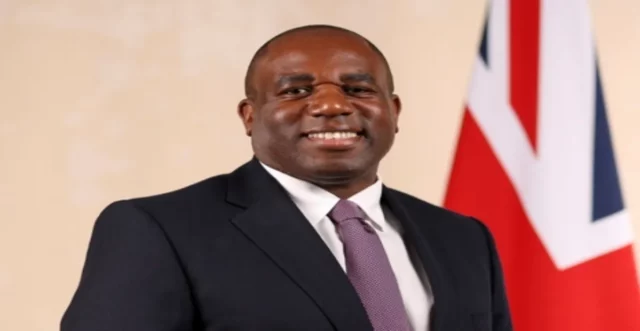UK Foreign Secretary David Lammy was in Delhi to get the wheels of the new relationship rolling.
Top of the agenda was the Technology Security Initiative (TSI) agreed upon by the two sides in May this year during the visit of the UK National Security Adviser Tim Barrow. The TSI is a bilateral framework designed to enhance cooperation in critical and emerging technologies.
A press note issued by the Ministry of External Affairs (MEA) on the visit of UK Foreign Secretary Lammy late on Wednesday, said the two sides looked forward to working together in key areas across public and private sectors and academia.
Important to note that the TSI is being coordinated by the NSAs of the two countries with the MEA and its UK counterpart working on the relevant regulatory and licensing issues.
The two sides will hold a dialogue on global tech governance, coordinate positions on digital tech standards and support the multi-stake model of internet governance.
Telecoms
The two sides will focus on joint research in future telecom, Open Ran Systems, testbed linkups, security, spectrum innovation, software and systems architecture. India’s C-DoT, DoT’s Telecom Startup Mission and the UK’s Sonic Labs will work together on the above.
6G technology is another area of focus with Indian and British institutions including UK Telecoms Innovation Network, University of York and others collaborating.
Critical Minerals
They will share data between the University of Cambridge, IIT Dhanbad and IIT Bombay on supply chains, extraction technologies, mineral processing, data management and so on.
They will also explore a joint critical minerals recycling centre in India, “including but not limited to advanced military waste recycling.”
Semiconductors
the two sides will explore chip design, advanced packaging, applications such as processing net zero and cybersecurity. They will work on integrating supply chains for manufacturing and designing chips and promote business ventures where Indian and British firms will work in partnerships.
Artificial Intelligence
In the field of Artificial Intelligence, the focus is on “safe, responsible, human centric and trustworthy AI”.
The two sides will establish a mechanism for collaboration and policy exchange on AI applications; equip AI researchers, policymakers and professionals detect, mitigate and challenge bias in AI algorithms; develop AI for climate science; and build on the work done at IIT Madras, IISC Bangalore and Universities of Southampton and Oxford for outcome oriented recommendations.
The Alan Turing Institute in the UK and Indian institutions will also collaborate to take forward AI across sectors.
Quantum
In Quantum, they will work on joint hackathons in quantum algorithms and solutions in life sciences, automotive, chemicals and greenhouse gas domains. UK’s Imperial College and India’s C-DoT, ORCA and Telecom Engineering Centre will work on skills development.
Biotech
Collaboration in biotech will cover genomics, genomic prediction and precision medicine, bio-sensors, bio-electronics, bio-materials and bio-fabrication.
Advanced Materials
The two sides will collaborate on novel alloys and powders and advanced materials for extreme environments.
The universities of Manchester’s Graphene Institute and the one in Cambridge University will work with the Indian Institute of Science on two dimensional and atomically thin materials and nanotechnology. They will also work on qualification and certification.


